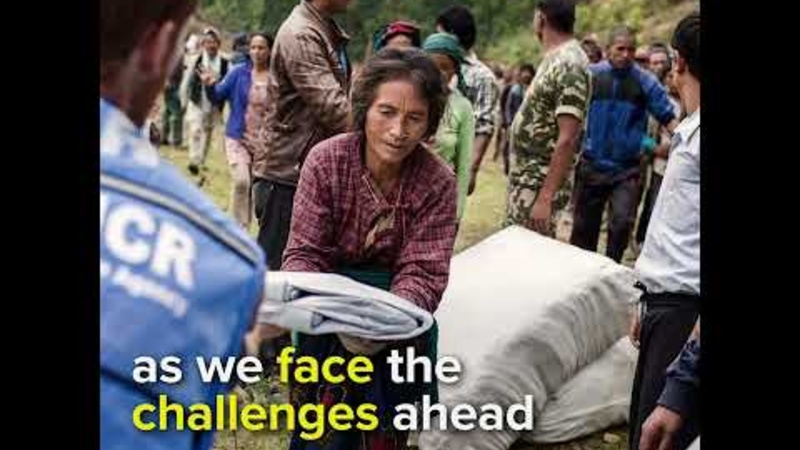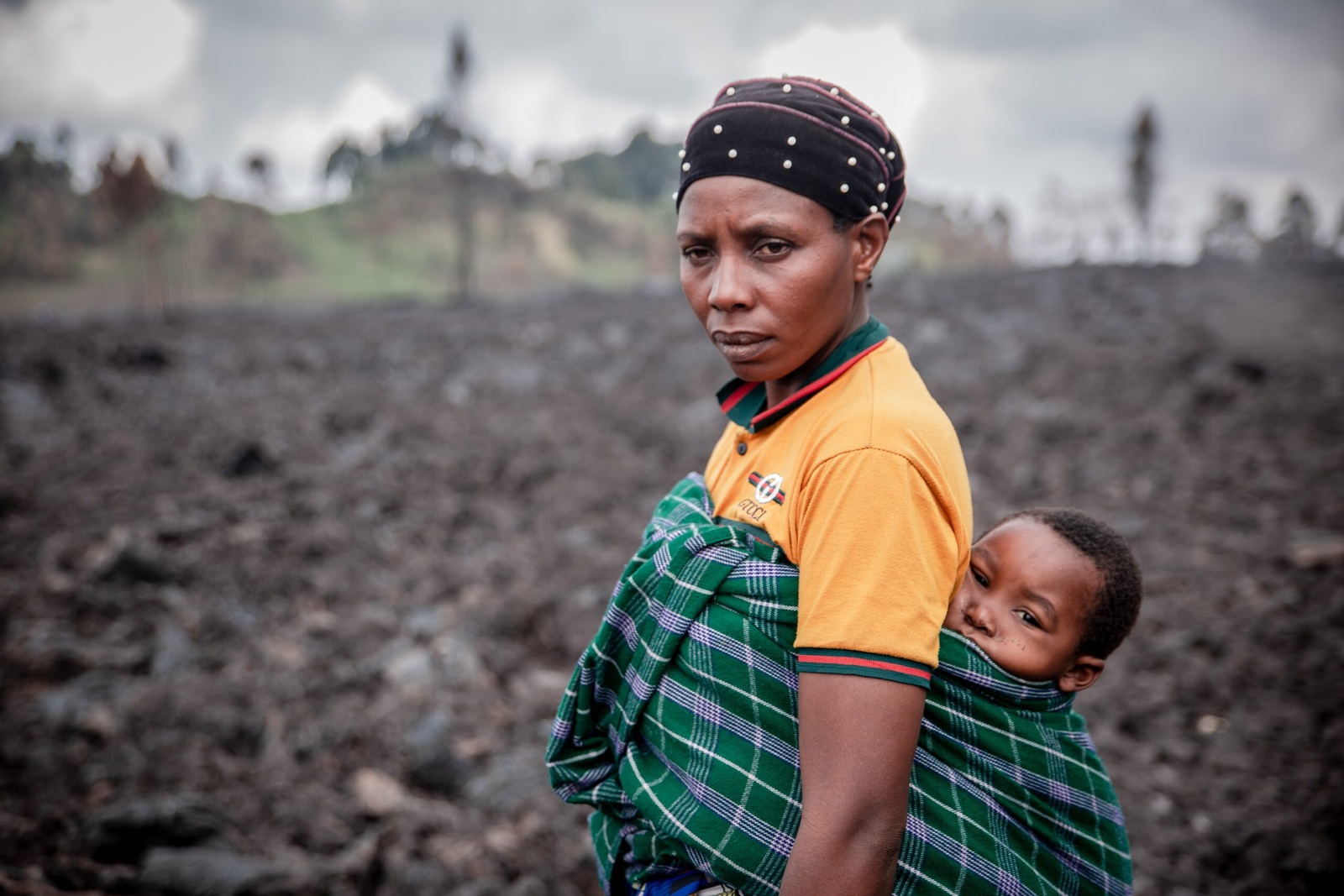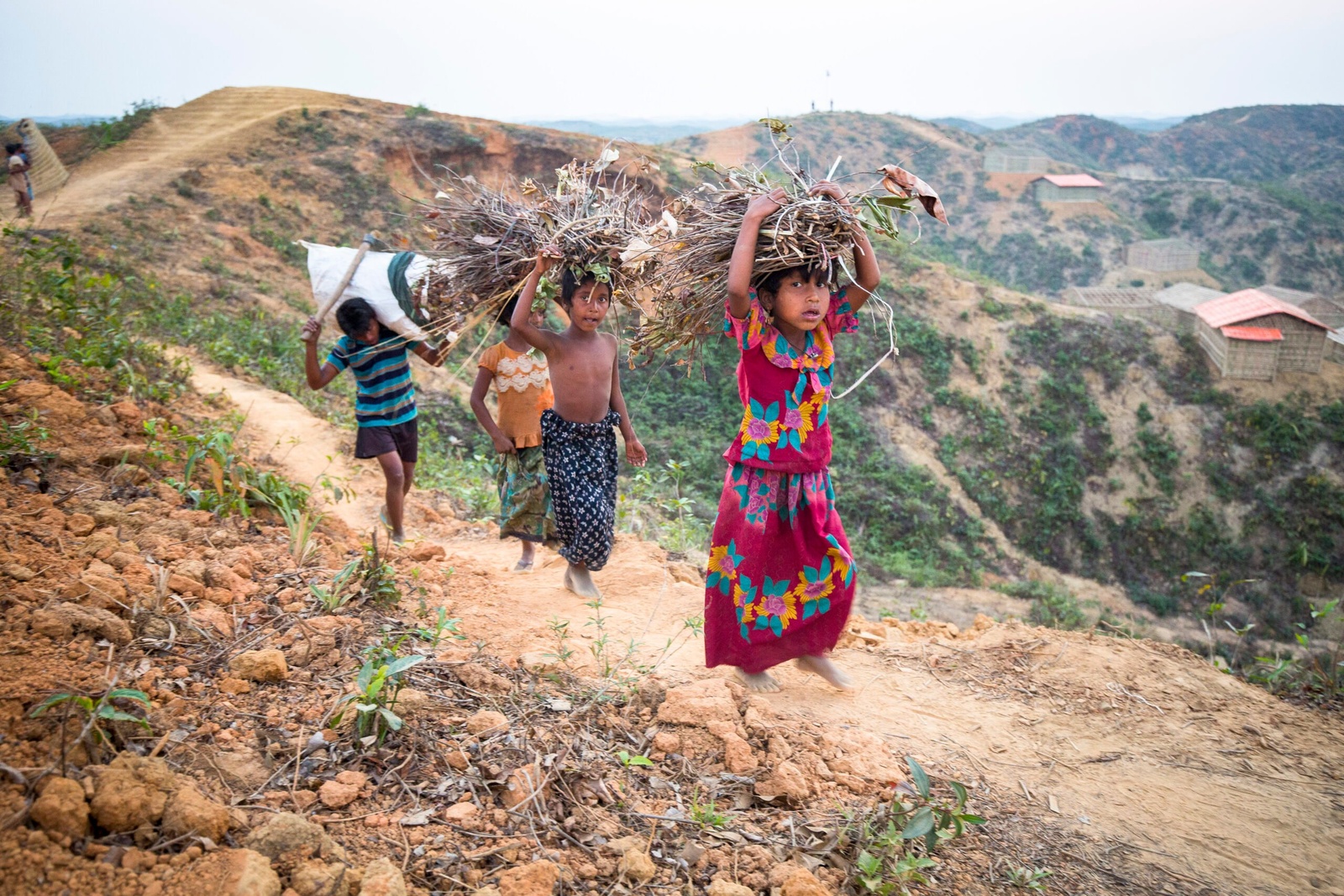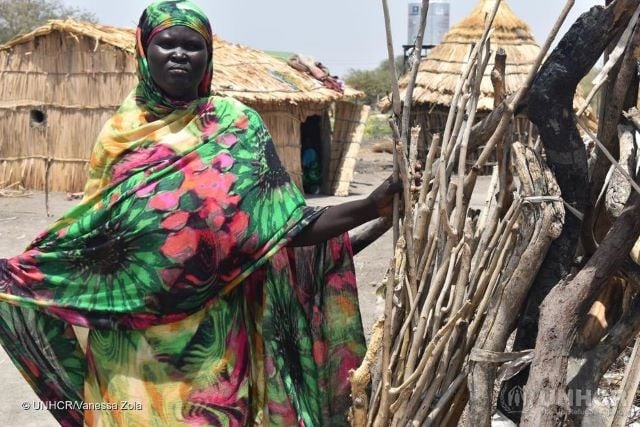Environment, Disasters and Climate Change
Environment, Disasters and Climate Change
Many of them rely on the environment for survival, particularly during emergencies – for food, shelter, energy, fire and warmth, medicine, agriculture, income-generation activities and more. Unsustainable use of natural resources can lead to environmental degradation, with lasting impacts on natural resources and on the well-being of the displaced and host communities.

Since the 1990s, we have become increasingly committed to protecting the environment and of the environmental challenges associated with hosting a large population in a small area. Over the course of the last two decades, we have set in place programmes and initiatives aimed at improving sustainable environmental management, aiming to reduce environmental degradation and enhance the resources available to the displaced, as well as host communities.
Disasters and climate change are a growing concern. Since 2009, an estimated one person every second has been displaced by a disaster, with an average of 22.5 million people displaced by climate or weather-related events since 2008 (GRID 2018). The Intergovernmental Panel on Climate Change, the UN's science advisory board, projects an increase in the number of displaced over the course of this century. The majority of the people of concern to UNHCR are concentrated in the most vulnerable areas around the world. Climate change will force people into increasing poverty and displacement, exacerbating the factors that lead to conflict, rendering both the humanitarian needs and responses in such situations even more complex.
We are deeply concerned about the massive protection challenges raised by disasters and climate-related related displacement, and work with other agencies and a range of partners to protect those at risk.

We can support a household with more than 820 briquettes to cook, a more sustainable energy source for refugees

To allow five internally displaced people (IDP) households access to drinking water from a water tank for a year

To provide a displaced person with one month of cash assistance so they can afford what they need
How do climate emergencies displace people?
In Burkina Faso, displacements caused by global heating and violence are happening right now. When people flee due to both climate emergency and conflict, the world is failing.
Over the past few years, people in the Sahel region in Africa have suffered from some of the worst violence and climate-induced displacements.
Sambo Maigai, one of the displaced, with a family of 12 had moved from town to town in search of shelter and safety. Climate change has rendered his farm impossible to be used to grow crops and livestock. The temporary shelters provided by UNHCR, the UN Refugee Agency, were also swept away by extremely heavy rains.
They now struggle to pay the US$6.40 monthly rent for a small mud house with a dirt floor.
“There is nothing here I can do to sustain my family,” he said.
Over 2.7 million people have been forced to flee their homes. Shelter, water, sanitation, health, and other basic assistance needs are now needed more than ever. UNHCR needs your sustained financial support to continue to scale up assistance.
HK$500 a month can provide a displaced person with one month of cash assistance so they can buy food, pay rent, and other life-essential items.
These people need urgent assistance
Many displaced people are in urgent need of housing and basic items like sleeping mats, blankets, and kitchen utensils. Among them are people in Goma, Congo.
In May, following a volcano eruption, more than 420,000 people fled away from their homes in Goma, Congo. Some fled to other areas of the country, and the others crossed the border to its neighboring countries. More than 4,000 homes were destroyed by lava and extreme heat.
50-year-old Julienne experienced a similar journey. She walked to Sake with her ten children. The walk was difficult as Julienne had a pain condition that required her to walk with a walking stick. They had to stop multiple times and slept by the roadside out in the open when they were too tired. Eventually, Julienne and her children found shelter at the school.
Dozens of families also stayed at the school without running water or electricity, facilities, hygiene, or comfort.
UNHCR estimated about 350,000 people need dire humanitarian assistance. Assessments on the ground show that shelter is the most urgent need, as are water and food.
A donation of HK$350 a month allows five internally displaced people (IDP) households access to drinking water from a water tank for a year.
How does UNHCR support environmental solutions?
Using sustainable energy
Meet Alisa Deng, a 35-year-old-mother of three, who was forced to flee from conflict in South Sudan five years ago had to take day-long trips to a forest in Sudan’s White Nile State to collect firewood. Many families like Alisa depend on this increasingly scarce resource to make food and shelters.
Cooking with firewood creates multiple problems for internally displaced person (IDP) like Alisa. It does not only contribute to deforestation and unhealthy living environments, but it also poses a risk for the women and girls who most frequently gather it.
Many of these women and girls have reported being beaten up or sexually assaulted while collecting firewood.
Currently, about 85% of displaced populations in camps use unsustainably harvested biomass.
To tackle these problems, UNHCR, the UN Refugee Agency worked with other partners on various projects to help mitigate the effects of climate change and create sustainable living conditions for refugees and internally displaced people (IDP), including providing ethanol-gas cooking stove or liquefied petroleum gas (LPG).
Using ethanol or liquefied petroleum gas reduces the frequency and need of going out to collect firewood in dangerous environments. It also reduces the risk of catching accidental fires in shelters built from wood and plastic, cooks food faster, and lowers air pollution at home.
At Kutupalong refugee camp in Bangladesh, a pilot scheme involving distributing LPG to more than 6,000 families was successful.
However, there are more than just 6,000 families that need help. Similar events are happening in other areas. In Bangladesh and Sudan alone, there are more than 600,000 Rohingya refugees and over 270,000 South Sudan refugees respectively and they need our assistance.
A monthly donation of HK$100 could help distribute more than 820 briquettes per household for a year, reducing the risks of going out to collect firewood.
Climate change is the crisis of our time and we need to act now!
- With just HK$100 a month, we could distribute more than 820 briquettes per household for a year, reducing the risks of collecting firewood for women and girl.
- A monthly donation of HK$350 allows five internally displaced people (IDP) households access to drinking water from a water tank for a year.
- HK$500 a month can provide a displaced person with one month of cash assistance so they can afford what they need.
















